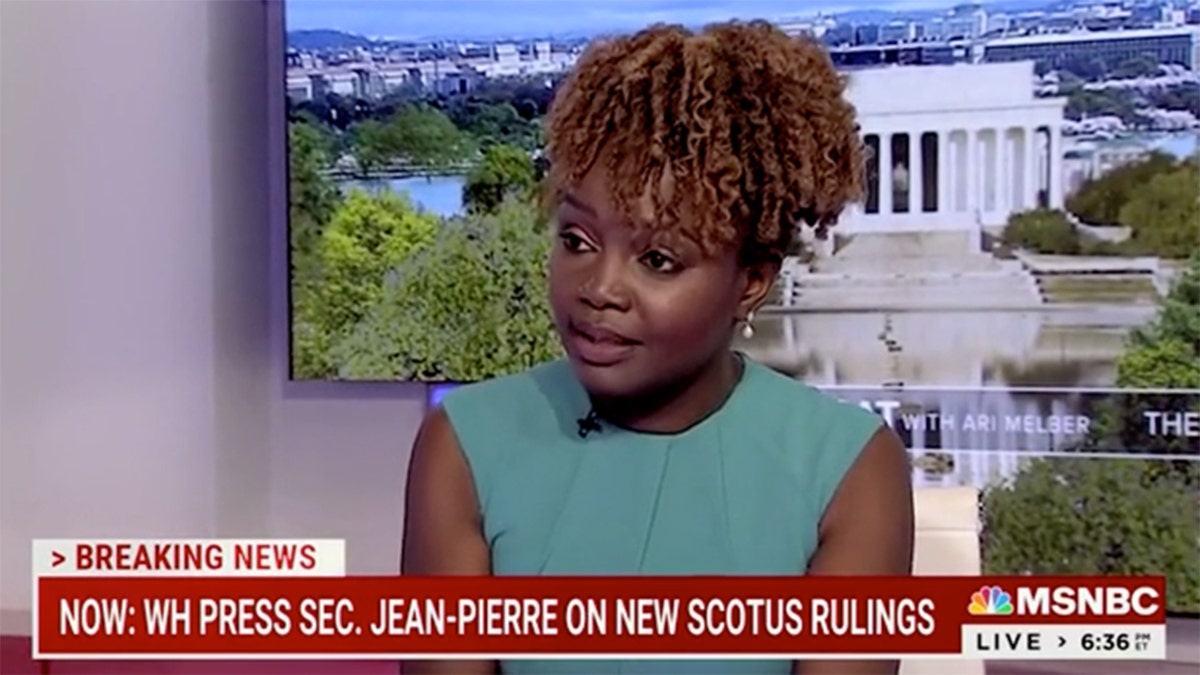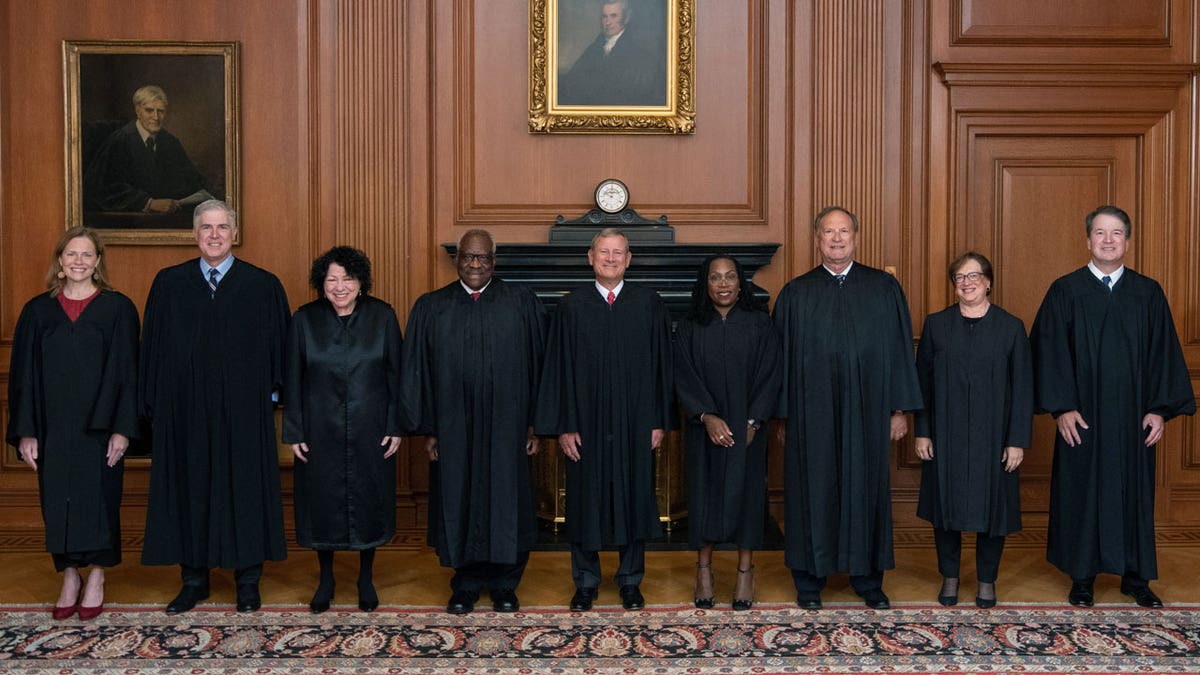Karine Jean-Pierre says SCOTUS 'taking away important constitutional rights' in affirmative action decision
White House Press Secretary Karine Jean-Pierre accused The Supreme Court of "taking away important constitutional rights" in their affirmative action decision on Friday.
White House press secretary Karine Jean-Pierre accused the Supreme Court of taking away "important constitutional rights" in their ruling on affirmative action during an appearance on MSNBC.
MSNBC host Ari Melber asked Jean-Pierre if the White House was going to do something in response to the Supreme Court's ruling.
"This is really, really important and I know the American people are really tracking this, as they should be. Dobbs decision, that was something that was decided on a year ago. Really took away the freedoms from women. I think about abortion, I think about reproductive rights. And that was unprecedented. Now you fast-forward to what we saw last week, affirmative action. Again, taking away important constitutional rights that have been in place for a long time," Jean-Pierre said.
GOOD RIDDANCE TO AFFIRMATIVE ACTION
Jean-Pierre also said President Biden is an "expert" on the court and understands "how this works."

White House press secretary Karine Jean-Pierre sits down with MSNBC's Ari Melber on Friday. (Screenshot/MSNBC/TheBeat)
"Let’s not forget the president, when he was a senator, he was the chair of the Judiciary Committee, he is an expert on this, he understands how this works. A lot of these unprecedented decisions that this SCOTUS has made, they have been held up in the past by Republicans, by Democrats, right? And so there’s so much changes [sic] that have happened in the past year. It is, you know, unheard of. It is really wrong what we’ve seen," she continued.
Melber also asked her about legacy admissions and whether the White House had any official stance on it.
KARINE JEAN-PIERRE LINED WITH QUESTIONS ABOUT COCAINE FOUND IN WHITE HOUSE
"What I can say at the moment, for now, is, one of the things, because as I mentioned, the president takes this very seriously, he’s an expert at this when it comes to judges and getting judges through. What we’ve done from day one is made sure that we, as we’re nominating judges and getting them through, federal judges, that they’ve been diverse. We’ve done 136 federal judges who are diverse and represent this country. And that is also important. So we’re going to keep that afoot, make sure that we continue to focus on that," she said.
"Don’t have anything to share on any actions that we’re taking, but certainly we’re going to be very vocal about it. We’re going to continue, as I mentioned, with the federal judges. We’re going to say, ‘this is wrong.’ It is unprecedented. This is what we’ve seen from this Supreme Court," she continued.

The Supreme Court ruled against the use of affirmative action in college admissions on June 29, 2023. (AP Photo/J. Scott Applewhite, File)
KARINE JEAN-PIERRE SPARS WITH REPORTERS, REFUSES TO ANSWER HUNTER BIDEN QUESTIONS IN TESTY EXCHANGES
The Supreme Court rejected the use of race as a factor in college admissions as a violation of the 14th Amendment's equal protection clause in their ruling on June 29.
"A benefit to a student who overcame racial discrimination, for example, must be tied to that student’s courage and determination," Chief Justice John Roberts wrote in the majority opinion.
"Or a benefit to a student whose heritage or culture motivated him or her to assume a leadership role or attain a particular goal must be tied to that student’s unique ability to contribute to the university. In other words, the student must be treated based on his or her experiences as an individual—not on the basis of race," the opinion continued.

Members of the Supreme Court, from left Justices Amy Coney Barrett, Neil M. Gorsuch, Sonia Sotomayor and Clarence Thomas, Chief Justice John G. Roberts and Justices Ketanji Brown Jackson, Samuel A. Alito, Elena Kagan and Brett M. Kavanaugh on Sept. 30, 2022, in Washington, D.C. (Collection of the Supreme Court of the United States via Getty Images)
CLICK HERE TO GET THE FOX NEWS APP
The Supreme Court also issued a ruling on the president's plan to cancel student loan debt at the end of June.
In a 6-3 decision, the court held that federal law does not allow the secretary of education to cancel more than $430 billion in student loan debt.

